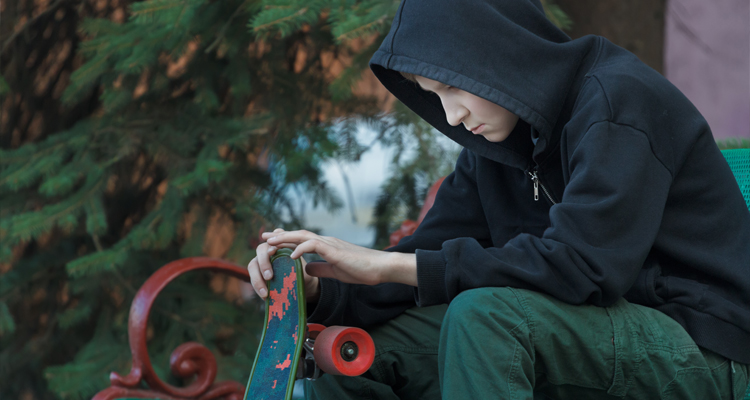Your child could be dressed in the coolest apparel and be involved in every sport, yet may still be subjected to bullying. Each bullying experience is different because each bully is different. When it comes to gender, in most cases girls tend to use relational aggression while boys are more physical. Boys are often expected to not speak up and to dominate in physical confrontations. Otherwise, they may be called weak and viewed as less of a man.
Rosalind Wiseman is the author of Masterminds and Wingmen: Helping Our Boys Cope with Schoolyard Power, Locker-Room Tests, Girlfriends, and the New Rules of Boy World. Wiseman has the ability to reach boys and girls and be relatable. “Boys can be bullied about so many things, but mostly they’re bullied about their weight—specifically their stomachs and if they have ‘man’ boobs or if they’re too skinny, short, or scrawny. Boys are also bullied if they ‘can’t take it’ meaning they get upset if others relentlessly make fun of them,” says Wiseman. “We often think that we need to talk to girls about body image [and] the negative impact of body shaming, but we need to talk to boys about it just as much—as targets, bystanders, and perpetrators.”
It’s crucial that adults keep the communication lines open and not allow outside stereotypes to cloud their vision on how things “should” be. Wiseman suggests that parents, educators, and anyone else who interacts with boys not jump to conclusions about what they think they should see in a boy. Instead, adults must identify the potential for every boy so they can become emotionally connected, strong, confident and self-reflective young men. “Boys will talk to us if we listen. But they aren’t going to talk if we ask them a hundred questions and then wait with super enthusiastic eyes for them to answer their deepest most private thoughts. They’re also not going to listen if we talk down to them, lecture them, or assume we have good advice when we don’t always know what’s really going on in their lives,” recommends Wiseman.
Through her various books and speaking engagements, Wiseman has cultivated a foundation for bullying awareness. When she wrote Queen Bees and Wannabes and Masterminds and Wingmen, Wiseman reached out to teenage boys and girls for feedback. For Masterminds and Wingmen, she says it took a while for many of the boys to tell her if there was something wrong with what she wrote. “Some didn’t want to hurt my feelings, some didn’t believe they could really tell an adult what they really thought, and others I think in the beginning didn’t really believe I would listen to them. But overall, the process was truly a collaboration so their reactions were really about guiding me through the process of what we should write,” says Wiseman.
Overall, Wiseman believes that boys and girls are a combination of nature, nurture, and culture. Boy or girl, it’s important to be self-reflective on how you interact with children about these issues and to remember that conflict will inevitably happen when you send your kids to school. “All children want to feel that their parents have confidence that they can handle problems on their own and want their parents to comfort them when they’re struggling. All kids at various times in their lives will experience being either a bystander, a target, or even a perpetrator—or very possibly experience being all three at different times in their life,” says Wiseman.




































